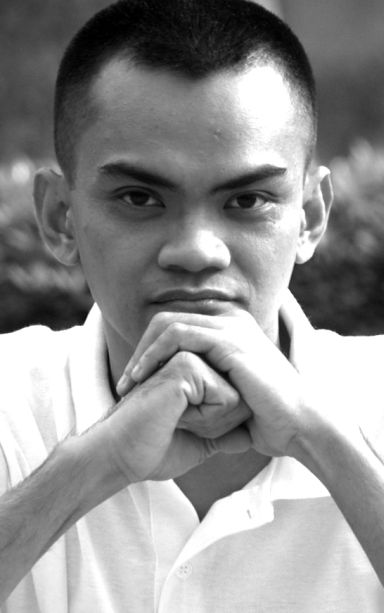
PAREDES
Just when we thought that we Filipinos have already gotten numbed at even the recent surge of killings as part of the stepped-up Oplan Double Barrel, the second phase of the government’s bloody war on drugs, many of us could not ignore the cold-blooded murder of the 17-year-old Kian delos Santos in a recent police raid in a slum area in Caloocan.
Part of it was caught on surveillance camera, and as the autopsy reports revealed in the recent Senate investigation of the case would show, the boy was apparently shot first on his back and then twice on the head at close range. Yet the police version was that the minor made the first shot at them, so they killed him. They also accused the boy of being a drug courier, an information they admitted during the Senate hearing that they only obtained days later on social media.
Not only is the stupidity of such explanation and the whole desperate attempt of the authorities to cover up so glaring, but so is the brutality of the murder. There seemed to be no hesitation to shoot this innocent boy, who seemed to be just an ordinary bystander who got so scared by the sudden presence of armed men he tried to run away.
But this was not the only controversial incident of brutal murder connected with the recent anti-drug police operations. Just a few days prior to the murder of Kian, in Bulacan alone, 32 people were killed in just two days of a similar anti-drug police raids in different communities. And in all these killings, the template explanation was always that all of the suspects fought back or shot first at the cops.
Despite its blatant implausibility, most of us don’t question that explanation. It’s too inconvenient to think about. Thus, before the killing of Kian, there was only a deafening silence from the public. Kian’s death was not, in fact, the first time that a minor was killed in a police anti-drug operation. A four-year-old was shot during the early stage of Oplan Tokhang, which claimed thousands of lives, many of them believed to be victims of extrajudicial killings. There had been other children too, “collateral damage” that we simply forgot.
We were then still euphoric at the impression that the war on drugs is a process of “cleansing,” of getting rid of the “bad elements” in our society. It was a fight between good and evil and if the means were evil, the good of the end justifies it. Machiavelli would have delighted at this sudden change in our morality.
The noise of support for the war on drugs was all over the social media and there was no need for government propaganda. The allied troll machine was churning out memes after memes and fake news after fake news for the unsuspecting public. Haters and bashers colonized the social network and it failed its promise to be a public sphere or a site for level-headed discourse.
In the midst of all the mass slaughter and the lack of public outrage, we wonder if we Filipinos have lost our sense of mercy and compassion towards our countrymen, particularly the poor and underprivileged. “Mercy and Compassion,” in fact, was the theme of the visit of Pope Francis in January 2015. To recall, millions of us, including some non-Catholics, came out to listen to the Pope and were moved by his message of mercy and compassion.
It was a simple yet inspiring reiteration of the core message of Christ: To love God is to love the least among us, including our enemy, as we love ourselves. It is such an almost impossible ideal — to truly love is to love the ones we usually stay away from, the dirty and sick, the poor and downtrodden, and even the ones that pose a threat to us, like the terrorists, the drug addicts and the criminals.
Yet that was the Pope’s reminder to all of us when he first came to the Philippines. Such message remains even more relevant given the challenges of the contemporary world: the threats of terrorism, the rise of racism, narco-politics, and the shift from liberal democracy to populist authoritarianism.
We all said “amen” to that and showed our love for Pope Francis in the beginning of 2015. But as soon as the campaign season started in the months that followed, the same millions who showed up in public expression of faith and love were also the same multitude that would cheer the pronouncements of hate and threats of death from the politicians that we later elected.
We, in fact, easily turned back at the church when it was openly attacked. Pope Francis himself was insulted even at the start. We have gotten used to the language of hate.
So it took the death of a boy to jolt some of us back into introspection. The nation is forced to undergo a moral dilemma. Authorities and some trolls have tried everything to reverse it by portraying Kian as evil in order to justify the murder. He was an accessory to the crime, they say. His family is in the drug business. He had no business being out in the streets at curfew hours when the police raid happened. His death was just an isolated case that was hyped and politicized.
But the fact remains that a boy was shot on the head and back at close range that night of the police raid. He was among the poor, underprivileged, and may even be an “enemy” that we are called upon to love.
Disclaimer: The comments uploaded on this site do not necessarily represent or reflect the views of management and owner of Cebudailynews. We reserve the right to exclude comments that we deem to be inconsistent with our editorial standards.
